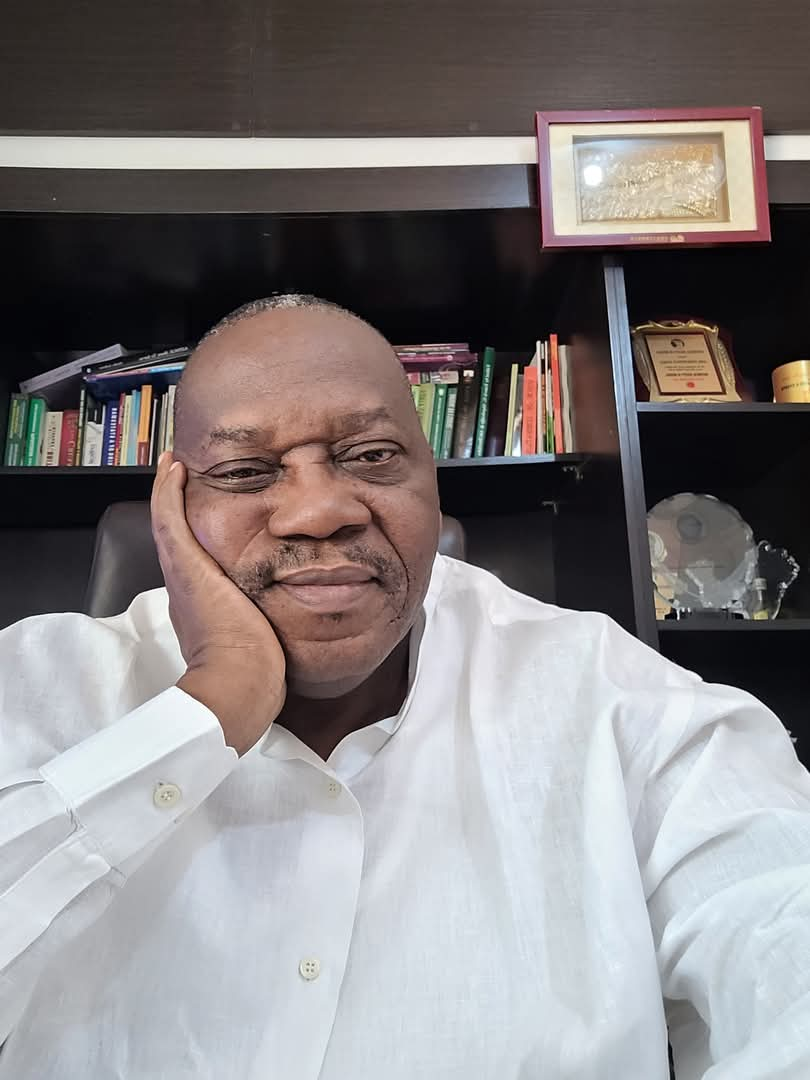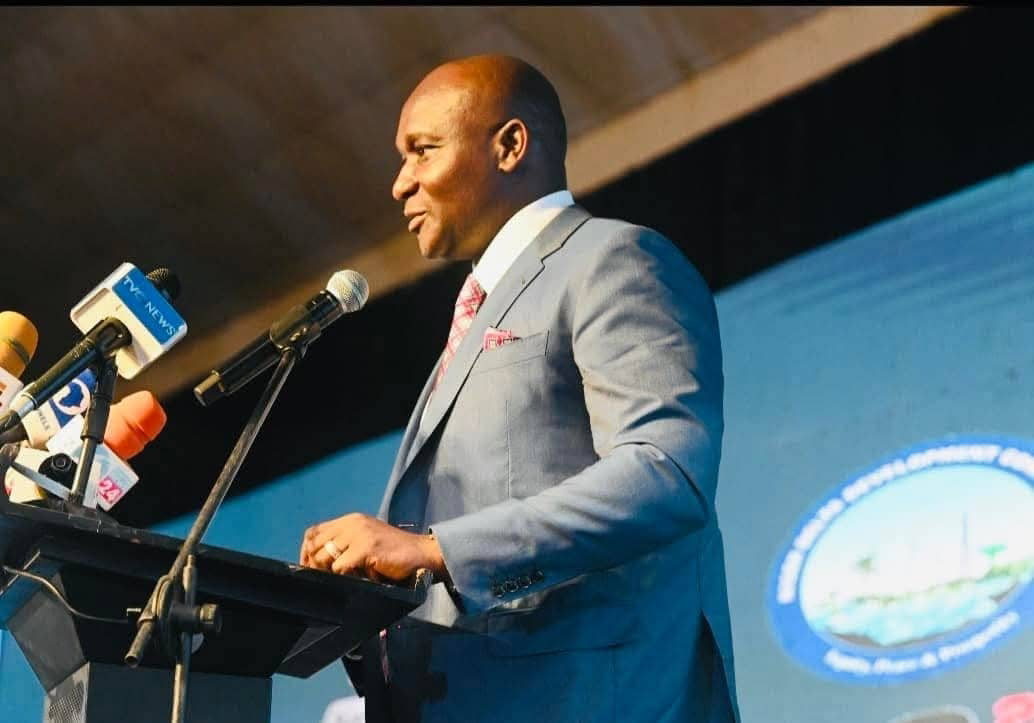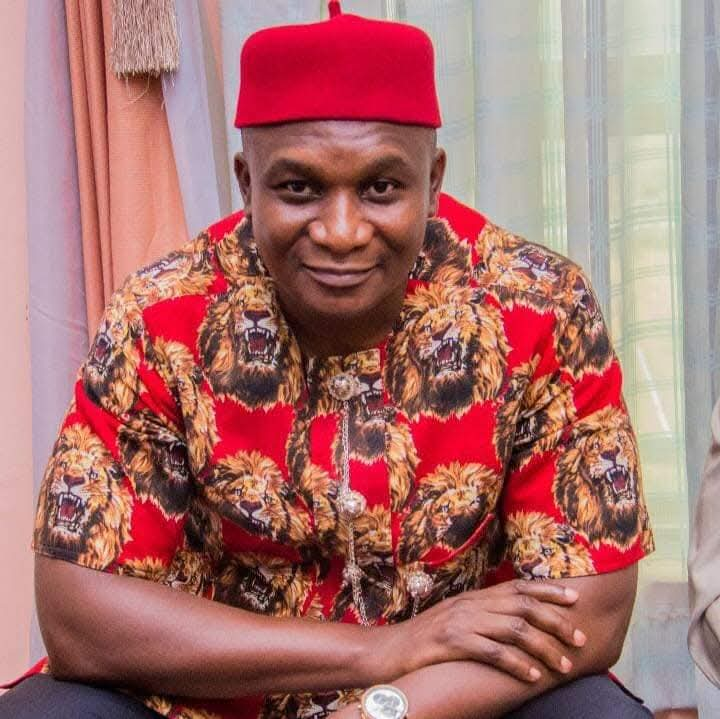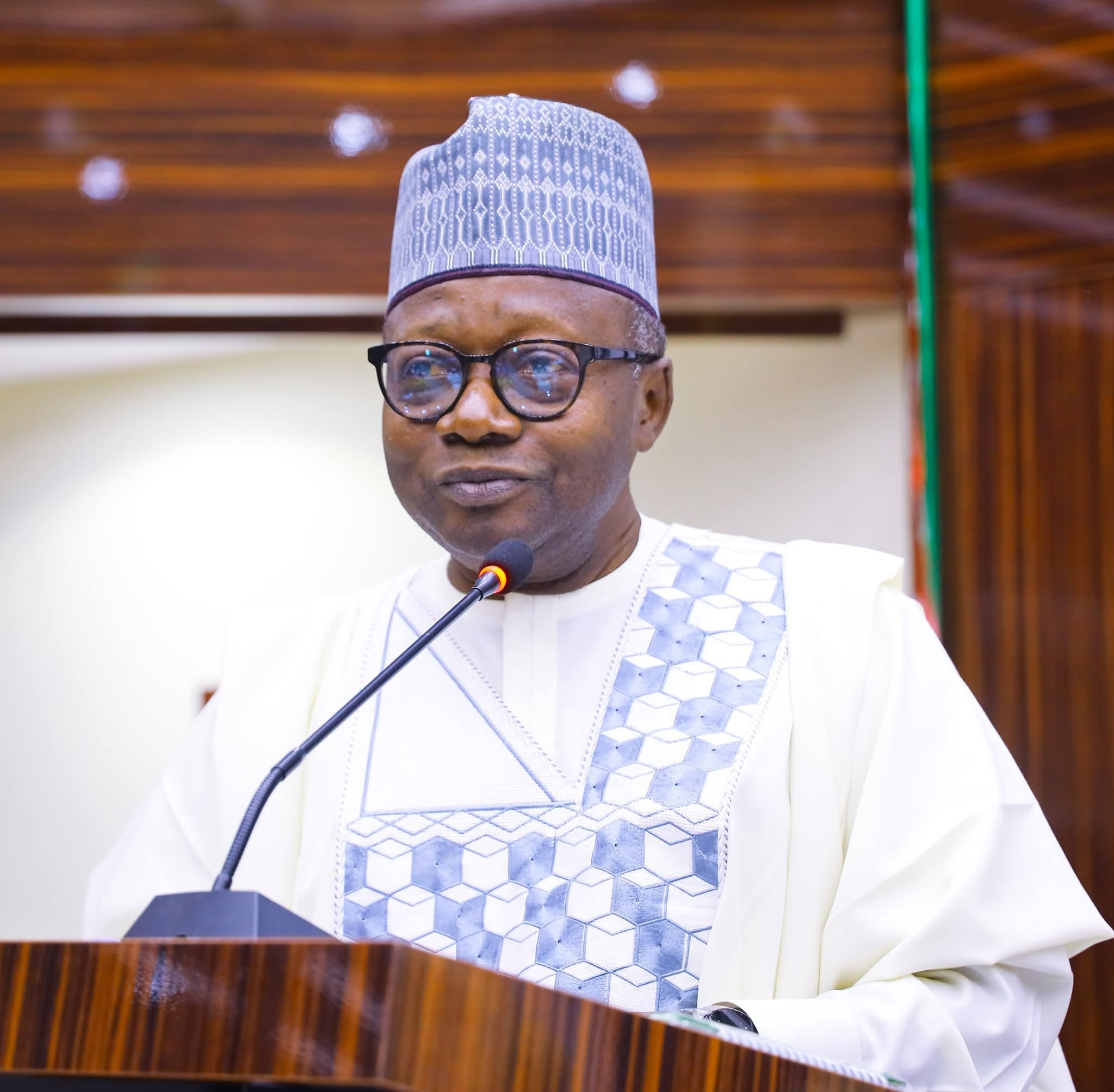By Godknows Boladei Igali
Thank you for reading this post, don't forget to subscribe!Prologue
Beyond the mere platitudes associated with longevity of earthly sojourn, late Chief E.K. Clark (97 years) and late Pa Ayo Adebanjo (96 years) exemplified extraordinary service to Nigeria and the generation they lived in. Their lives, separated at death by just three days, were marked by courage, resilience and a commitment to justice, unity and excellence; values that should profoundly shape Nigeria’s national journey.

In both public and private spheres, these two patriots consistently stood for what was right, often prioritizing collective interests above personal gain. Both lawyers, both bosom friends, both great nationalists, both nonagenarians and both defenders of the greatest virtue of patriotism, their lives typified the saying:
“a lion-hearted person is not one who is fearless but one who faces what others fear with courage and determination.”
These two men, now referred by some as “the last of the titans” among Nigeria’s founding political figures (excluding still-living Alhaji Tanko Yakasai and Pa Reuben Fasoranti, both set to clock 99 this year) were men of deep kindness, empathy, and integrity. It is no surprise that upon their recent deaths, several leading Nigerians averred that the country was actually interring great monuments of its very nationhood. It was somewhat, the nunc dimictis of the country’s foundational ethics, ideals and standards that will be remembered for no few generations to come.
Amongst others, Nigeria’s current leader, President Bola Ahmed Tinubu as well as former Presidents Olusegun Obasanjo and Goodluck Jonathan notably acknowledged both men as among the country’s greatest sons, praising their courage and invaluable contributions to the nation’s growth. While often seen as ideological twins, both men still had distinct personalities shaped by their backgrounds, upbringing, and life paths.
THE EDWIN CLARK STORY
A Legacy of Strong Patriarchy and Enterprise
While the world witnessed a major aviation milestone in which an historic transatlantic flight that set an unofficial record for the highest altitude reached by a human being in a balloon on Wednesday May 25, 1927, same day in Kiagbodo, Burutu Local Government of Delta State, Chief Edwin Kiagbodo Clark was born into a lineage of wealth, leadership and activism. His family background placed him in a blood line of the elite going 150 years back to post-slavery pre-colonial entrepreneurial interplay of power and wealth. As once famous “Legitimate Trade” replaced the Trans-Atlantic slave economy in mid-19th century, notable Nigerian figures such as King Jaja of Opobo, Oba Ovoranwen of Benin, Chief Nana Olomu of Itsekiri, King Koko of Nembe and Obi Ossai of Aboh and their like emerged as frontline traders and political actors in Southern Nigeria, then known as “Oil Rivers”.
In that generation, Clark’s great grandfather, named Chief Ambakaderemo Ogein and later his direct grandfather, Chief Fuludu Bekederemo, also stood out, owning the only major African-operated steamship, noted by British intelligence reports in the 1920s. Actually, a number of British colonial records indicated that the palace of these progenitors in Kiagbodo was, at the time, ranking in size and opulence next to that of the Oba of Benin.
In terms of political power, his grandfather, Fuludu Bekederemo, besides mercantilism, was also a leading figure who represented the Ijaw people of the western delta at the famed Ibadan Constitutional Conference of 1950-51, convoked to discuss the future of Nigeria as a prelude to the Macpherson Constitution of 1951. Chief Clark’s direct father was simply named as “Clark,” due to the fact that he became the bookkeeper of the family business, having acquired some level of western education. Hence, focused heavily on educational development of all his sizeable number of children including literary giant, Prof. J.P. Clark, ace diplomat, Amb. B.A. Clark, several top military officers, including Gen. Henry Clark and at least five professors, being testament to a family driven by the pursuit of excellence and national services.
Sustained Public Service
As the first son, coming down four generations, Edwin Kiagbodo often known by his peers and friends as “EK” embodied the spirit of his forebears. A natural leader, he inspired all his siblings and entire community from an early age. He could not continue at the famed Government Grammar School, Ughelli, founded in 1945, like his siblings and other prominent people from the area due to age. But in 1949, he enrolled at nearby Teacher Training College, Abraka, and on graduation, taught across Warri division, shaping a generation of future Nigerian leaders.

Inspired by the subsequent success of his two younger brothers’ (J.P and B.A.) at University College Ibadan in the 1950’s, and ever aspiring for the golden fleece, Pa EK pursued law studies in the United Kingdom in 1961, and was eventually called to the Bar at Inner Temple in 1964. While studying in the UK, he led Africans, especially law student bodies, reinforcing his roots as a pan-African advocate.
Midwest and National Roles
Returning to Nigeria in 1964 during the political turmoil in the Western Region, Chief Clark soon emerged as a key figure in the newly created Midwest Region, starting with advisory roles under first Military Governor, Col. (later General) David Ejoor and later Col. (later General) Samuel Ogbemudia as Commissioner. Placed in charge of Education and Finance, he led efforts to expand educational infrastructure, especially in coastal and rural areas of then Midwest State (now Delta, Edo and parts of Bayelsa State).
With the support of his Governor, Dr. Ogbemudia, Chief Clark also championed institutional upgrading of the Auchi Polytechnic which was established since 1963 and started the Midwest Institute of Technology (now University of Benin). He also extended hand of help to revitalize war-ravaged South East schools such as Queen’s School Enugu and the University of Nigeria Nsukka. At even wider level, he played the driving role in galvanising educational support and exchanges of science teachers and students with the states of northern Nigeria in the aftermath of the civil war.
More importantly, with his later elevation as a Federal Commissioner (Minister) of Information under the then Head of State, General Yakubu Gowon, he contributed remarkably to the sensitization of Nigerians to the “Three Rs” policy – Reconciliation, Rehabilitation, and Reconstruction. He also helped in negotiating the formation of Economic Community of West African States (ECOWAS), traveling across West Africa to secure support. He is acknowledged by many as one of the most loyal ministers who worked under General Gowon.
Political Influence and Advocacy
With the planned return of Nigeria to democratic rule since after the military coup of 1966 and the civil war which ended in 1970, Chief Clark became a founding member of the most prominent political organization at the time, National Party of Nigeria (NPN) in 1978 and was later elected Senator under its platform in 1983. Thereafter, he maintained influence across successive military regimes which ruled Nigeria one after the other. Later, he was a vocal figure in the 2005 National Political Reform Conference convened by former President Obasanjo. It is easily recalled that when his advocacy for Niger Delta interests was thwarted in that 2005, he staged a walkout, reinforcing his non-conformist reputation. This was notwithstanding the fact that the Chairman of that conference was Justice (Prof.) Nikki Tobi, fellow Ijaw man from his home base. In 2014, he equally became a prominent figure in the 492 member National Conference convoked by President Jonathan.
As the leading elder statesman of Niger Delta origin, Chief Clark, joined other prominent persons, and founded several groups culminating in the umbrella Pan Niger Delta Forum (PANDEF) in 2016 and later the Southern Nigeria and Middle Belt Forum. This latter body was focused on creating a unified voice for the South-South, South-East, South-West and Middle Belt (SMBLF) sections of the country. Under these groups, his legacy includes advocacy for equitable resource distribution, restructuring of Nigeria’s federal system, and promoting education across all regions.
In 2014, he founded the Edwin Clark University, Kiagbodo, now regarded as one of Nigeria’s leading private institutions at the tertiary level. Chief Clark passed away on Monday February 17, 2025 and was mourned by a nation that saw in him a true lion who fought relentlessly for justice in good conscience and courage.
BRIEF ACCOUNT ON PA SAMUEL AYODELE ADEBANJO:
The Torchbearer of Awoism
Pa Samuel Ayodele Adebanjo was regarded as a true celebration of the worthy indigenous political philosophy of “Awoism”. So, his life was a reminiscence of the known fact that, Chief Obafemi Awolowo, former Premier of the Western Region, remains rated as Nigeria’s most unfulfilled Head of State. His ideological doctrine, Awoism, emphasized social welfare, education, justice and cultural advancement. Among his most ardent disciples was Pa Ayo Adebanjo, who upheld these ideals with unwavering commitment until his death on Friday 14th February, 2025.

Born on Friday April 10, 1928, in Ijebu Ogbu Oke, now in Odogbolu Local Government Area of Ogun State, to a very strict Christian father and a Muslim mother, Pa Adebanjo therefore embodied tolerance, discipline, and defiance from a young age. Though frequently in trouble from the incipient days of life on account of his unbending demeanour, his brilliance and charm usually rescued him and made him to stand out at all times.
Legal Pursuits and Political Awakening
Educated at primary and secondary schools in the 1930s/1940s in Lagos, Pa Adebanjo went to the United Kingdom for legal studies and was called to the Bar at Lincoln’s Inn in 1961 (sister body to Chief Clark’s own Inner Temple). After his law studies, he returned to Nigeria at the vortex of Western Region’s politics and became a key figure in the Action Group, a party driven by Chief Awolowo’s vision, of which he was a founding member in 1951.
Though Chief Adebanjo never held elective office, he was a formidable party strategist within his regional political biosphere. From the Action Group (AG), founded in 1951 to Unity Party of Nigeria (UPN), founded in 1978, Alliance for Democracy (AD), founded in 1998 and Action Congress of Nigeria (ACN) founded in 2006, he was central to candidate selection and “progressive” ideological pursuit. His influence was such that he was considered amongst the intellectual forte behind what some termed the “Ijebu Mafia” in Yoruba politics which produced some of Nigeria’s most outstanding political leaders and professional class.
Moral Stature and National Influence
More than a kingmaker, Pa Adebanjo was a principled advocate for truth and justice at the national space. He was equally a fierce critic of military dictatorship and a defender of the June 12, 1993 democratic mandate of Chief Moshood Abiola after the Presidential election of that year. In this regard, he co-founded with others the National Democratic Coalition (NADECO), enduring imprisonment and harassment on several occasions, but remained doggedly unruffled. Deservedly, his refusal to compromise on core ideals and non-conformist principles made him a rare gem within Nigeria’s political landscape and elevated him as a seeming patron of the activist and civil society community.
Following the 2008 demise of Senator Abraham Adesanya as leader of the Yorubas and the Awoism political mantra, Pa Reuben Fasoranti and later, Pa Adebanjo assumed leadership of Afenifere, the flagship Pan Yoruba movement they founded in 1953. Later on, another socio-political group, the Southern and Middle Belt Leaders Forum (SMBLF), was co-founded by Pa Adebanjo along with Chief Clark, with a mandate on championing restructuring, true federalism and co-hosting national rallies across the country. Until his death, Adebanjo remained an indomitable force for the reign of equity, democracy, national politics and Yoruba cultural pride realism.
BRIEF CRITIQUE
Though widely mourned by all of Nigeria, Chief Clark and Pa Adebanjo were not without criticism in some quarters. For instance, some labelled both of them as ethnic champions, that is an Ijaw/Niger Delta leader and Yoruba/Ijebu protagonist respectively.
However, in true historical realism, such portrayal of these great men ignores their altruistically nationalalistic worth on core issues which spanned over 70 years. Besides countless instances of their activism and contributions to the enthronement of fair play and justice in national politics. There are countless examples, but a particular case stood out remarkably in recent times. Towards the end of their lives, that is during the 2023 Presidential election in Nigeria, both men staunchly supported the effort towards what became termed an “Igbo Presidency”. Standing on the gravamen of their argumentations on fairplay, they averred and strongly so, that no Nigerian of Igbo origin has been privileged to rule the country since after Dr. Nnamdi Azikiwe’s (1960-1966) and the brief six-month military rule by General Thomas Aguiyi-Ironsi (January – July, 1966). Yet, the Igbos as critical stakeholders of Nigeria do contribute substantially to national development.
Accordingly, these two elderly activists at personal levels, backed the Presidential ambition of former Anambra State Governor, Peter Obi of the Labour Party, over and above incumbent President Tinubu of the All Progressives Congress (APC) candidate who is a fellow citizen from the South West as Pa Adebanjo. This was a similar scenario as the ambition of former Delta State Governor, Dr Ifeanyi Okowa as Vice Presidential candidate under the Peoples Democratic Party (PDP) from the home base of Chief Clark who was even a founding member of the PDP. Coincidentally, both President Tinubu and Governor Okowa considered Pa Adebanjo and Chief Clark as their respective political fathers. But both old men argued that their volte face was not out of self-deprecation or own group exclusionism; but on principles.
At another level, some others questioned and took umbrage at their frequent and rabid public interventions on all manner of issues late in their lives. In particular, in what appeared like synchronized outbursts, they remained vocal against policies of successive governments which they considered “anti-people” both at federal and sub-national levels.
Similar to the earlier view, it is a known fact that their vocal advocacy in these latter years was not new, but was a continuation of decades of loud voices on national issues. Chief Clark’s pan-Nigerian activist push, especially as it pertained to the Niger Delta and the Ijaw ethnicity, and Pa Adebanjo’s own federalist obsession, both began early and endured to the end. Indeed, while Pa Adebanjo leaned left in ideological terms, Chief Clark was a nonconformist centrist, perhaps blended in some form with compassionate capitalism. But both were passionate and principled agitators for the common good and the rebirth of a greater and better Nigeria.
CONCLUSION
This is one moment that one common aphorism easily comes to mind, – “great nationalists do more than serve”. Actually, such lives provoke greatly beneficial public thoughts, demanding justice, and inspiring others to the best of causes. Chief Clark and Pa Adebanjo epitomized these traits and were unapologetic about them throughout life. For them, true patriotism meant challenging bad governance whether in jack-boots, in flowing “agbada” or adorning a round domed bowler hat. Their deeper, inner stimulus always vetted on defence of the nation’s soul and the general welfare of the entire population. It did not matter which part of Nigeria was affected, they fought loud and clear for pursuit of sterling ideals.
Now, going forward, one big question that re-echoes in the national discourse is, who will fill their shoes? Fill shoes??
Perhaps no single person can easily assume such roles as their lives’ footprints are simply intimidating. But the nation needs not be perturbed because the true worth of life is not about filling the shoes of great men; rather, it is about each individual on earth making their marks following certain truths and ideals. Importantly, the values handed down through public interventions of men, like our two heroes, their writings and personal idiosyncrasies ingrained in the consciousness of their families, followers and friends. Surely these will endure for generations. So, their lives were not mere biographies but national templates for all who are alive today and will come to follow in succession. As the American philosopher John Hancock once put it:
“Patriots indeed die, but patriotism speaks forever”.
Certainly, both Chief Edwin Clark and Pa Ayo Adebanjo may be gone, but their voices fierce and unrelenting as they were, will continue to speak loudly across Nigeria for a long time to come.
Rest on, dear daddies.
*Dr. Godknows Boladei Igali, National Chairman, PANDEF is author of the 2015 ‘US Books Sterling Gold Prize for Literary Excellence ‘ Winning Book, “Perspectives on Nation, State Formation in Contemporary Africa”, and writes from Abuja
Kindly share





